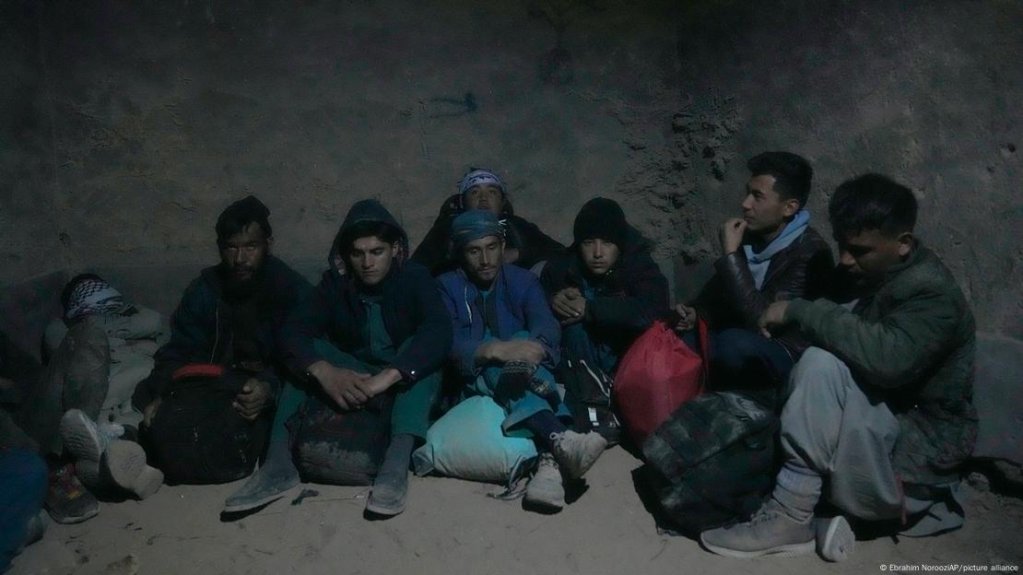The European Commission unveiled plans to make it easier to send asylum seekers to certain third countries. The move, which is part of the broader Pact on Migration and Asylum expected to come into force next year, is aimed at streamlining asylum procedures and easing pressure on national asylum systems.
The European Commission has proposed rules that will expand the conditions under which the 'safe third country' concept can be applied, it announced in a press release on May 21.
The move, which is part of the broader Pact on Migration and Asylum expected to come into force next year, is aimed at streamlining asylum procedures and easing pressure on national asylum systems.
The European Commission defines a safe third country as a country outside of the European Union (EU) that treats a person seeking asylum with genuine protection from persecution and respects the principle of non-refoulement.
The proposal lists the following conditions for the application of the ‘safe third country’ concept:
- A prior connection between the asylum seeker and the third country would no longer be mandatory. Instead, member states could define such a connection according to their national laws
- Relatedly, transit through a safe third country before reaching the EU can be considered sufficient grounds for transfer
- In cases where no connection or transit exists, asylum seekers could still be sent to a third country if there is a bilateral agreement or informal arrangement in place, provided that country agrees to assess the individual’s protection needs. However, this option would not apply to unaccompanied minors.
- Additionally, to curb procedural delays, the Commission proposes removing the automatic suspensive effect of appeals against inadmissibility decisions based on the safe third country concept, meaning deportations could proceed even while an appeal is pending.
Read AlsoGerman and Italian leaders meet to talk about third-country return hubs
Strong safeguards
In an email to InfoMigrants, a European Commission Spokesperson explained the proposed forms come with strong safeguards. "Under the proposal, unaccompanied minors (UAM) cannot be transferred to third countries to which they have no link, be it connection or transit. In any case, when applying the safe third country concept to UAM, and to minors in general, national authorities need to make sure this is not against the best interests of the child."
Additionally, authorities of safe countries must issue assurance that the UAM will be taken in charge and will immediately have access to effective protection.
With regard to the removal of the automatic suspensive effect of appeals against inadmissibility decisions, the Spokesperson confirmed that this would mean that the suspensive effect will no longer be automatic when an appeal is lodged and will no longer have an automatic right to remain in the EU while the examination of their appeal is pending.
"Applicants retain the right to request this suspension, which indeed may be granted by the court of appeal. In this context, it is important to highlight that a person can only be transferred to a safe third country after the return procedure is also completed. The return procedure retains a mandatory suspensive effect in case there is a risk of refoulement," said the Spokesperson.
"Providing protection to people is a global responsibility. The EU fully plays its part in this. We have done so in the past, and we continue to do so," the Spokesperson concluded.
'Safe countries'
The proposal is the latest in a series of steps by the EU to tighten asylum rules. In April, the European Commission designated Bangladesh, Colombia, Egypt, India, Kosovo, Morocco, and Tunisia as "safe countries of origin," allowing for fast-tracked asylum procedures and a higher likelihood of rejection.
Taken together, the proposed revisions to asylum procedures mark a significant recalibration of Europe’s approach to migration -- one that prioritizes border control and externalization of asylum processes over individualized protection assessments.

As the legal and humanitarian implications come into focus, rights groups and legal experts warn that the changes could weaken asylum protections and shift responsibility for refugee care onto countries outside the EU.
Read AlsoEU Pact on Migration & Asylum may 'legitimize violations' believes NGO
Possible implications and impact
The proposed expansion of the third 'safe country concept' is raising alarm among rights advocates, who warn it could severely restrict access to protection for people seeking asylum in Europe.
The human rights think tank European Council on Refugees and Exiles (ECRE) warned the under the changes, it would become significantly easier for member states to reject asylum claims as "inadmissible" by asserting that the applicant could receive protection in a designated safe third country -- even when that country is not genuinely safe or has no connection to the person concerned.
Citing the first proposed change about eliminating the need for a connection or meaningful link between the asylum seeker and the designated safe third country, ECRE said, “Instead, as well as "effective protection" being available, one of three conditions needs to be in place: a connection or transit across the country or an agreement or arrangement with the country which includes an in-merits assessment of the protection request.

According to the European Council on Refugees and Exiles (ECRE), the proposed reforms remove the requirement for a meaningful link between the asylum seeker and the designated safe third country. Instead, the application of the concept would require only one of three conditions: a personal connection as defined by national law, transit through the country, or the existence of an agreement or arrangement that includes an in-merits assessment of the protection request. However, ECRE argues that mere transit or a bilateral arrangement does not make a country a suitable destination.
"Mere transit or an agreement/arrangement with a country does not make it a suitable place to send the person – the concept shouldn’t be used at all. If it is, at very least, there should be a connection between the person and the country," the ECRE said.
Wide criticism from migrant rights groups
Amnesty International slammed the proposed reforms, such as the recently proposed Return Regulation, saying that these measures amount to an "alarming attempt to externalize refugee protection and migration control far from Europe’s border."
The Return Regulation, proposed in March, proposes the establishment of a common return and repatriation protocol across the different EU member states.
"These proposals are yet another cynical attempt to evade the EU’s refugee protection responsibilities, shifting them to countries with fewer resources and less capacity to offer lasting protection. Sending people to countries to which they have no connection, no support and no prospects, or may have only briefly transited through, is not only chaotic and arbitrary, but also devastating on a human level," Olivia Sundberg Diez, Amnesty International’s EU Advocate on Migration and Asylum, said in a statement.
"Let’s be clear: This revision would only further weaken access to asylum in Europe, downgrade people’s rights, and increase the risk of refoulement and of widespread arbitrary detention in third countries – especially in light of the EU’s increasingly evident inability to monitor and uphold respect for human rights in its partner countries," Diez added.
Silvia Carta, Advocacy Officer at the Platform for International Cooperation on Undocumented Migrants (PICUM), described the proposal as "a blow against people seeking protection and livelihood in Europe".
“We can expect families being separated and people being deported without appropriate judicial review to places they don't even know. This is no way of living up to Europe's values of human dignity and human rights," Carta said in a statement emailed to InfoMigrants.
